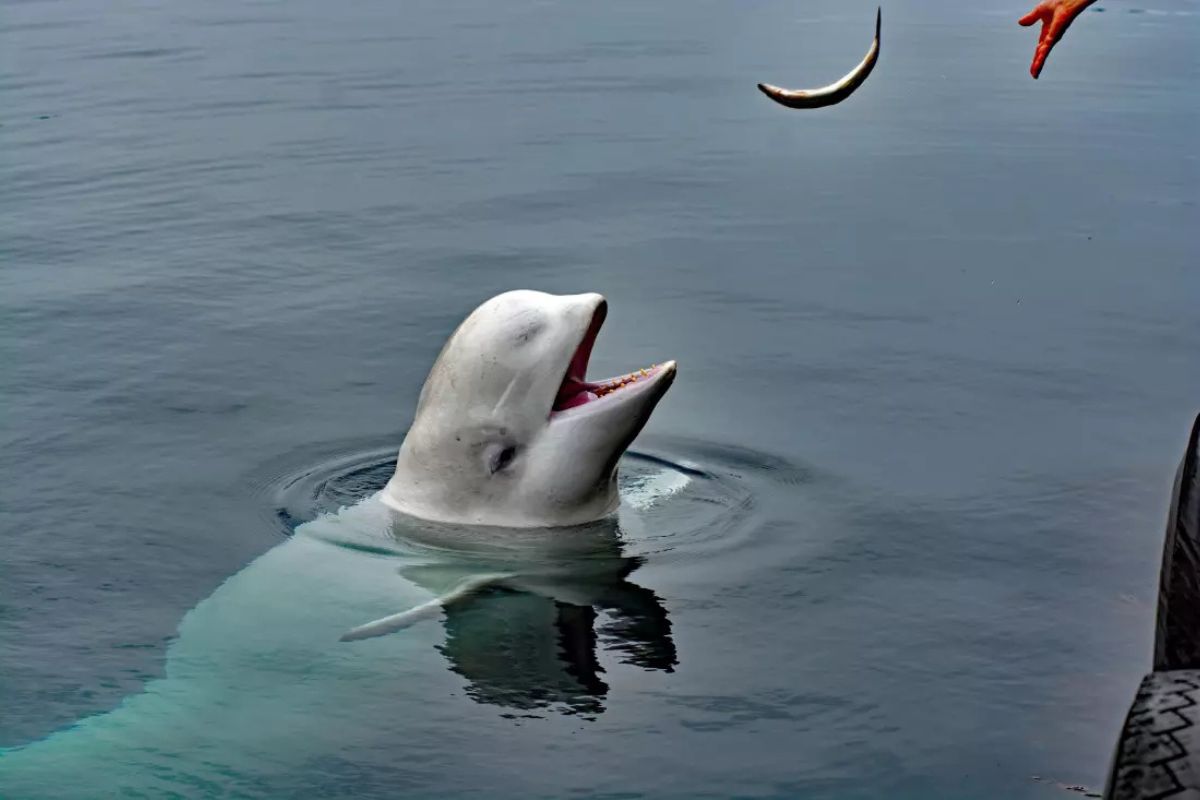The beluga whale, famously known as the “spy whale,” may have been guarding sensitive “Kremlin property” before its death in Norway, as revealed in a recent documentary. The whale, nicknamed Hvaldimir—a blend of the Norwegian word for whale, hval, and Russian President Vladimir Putin’s name—was discovered floating in Risavika Bay, southern Norway, this past September.
The “Spy Whale” and Its Mysterious Past
Hvaldimir first gained worldwide attention in April 2019 when fishermen spotted him near Ingoya, northern Norway. His unusual harness, equipped with a small camera and a buckle marked “Equipment St Petersburg,” fueled suspicions that he had been trained for espionage.
New Evidence from BBC Documentary
The BBC documentary Secrets of the Spy Whale, after a 10-month investigation, posits that Hvaldimir was more likely a trained “guard whale” rather than a spy. Director Jennifer Shaw shared with The Observer: “Our findings about Hvaldimir’s potential role bring us closer to solving the mystery, but they also raise further questions about what Russia might be guarding in the Arctic, and why.”
How Animals Could Be Trained for Security
The documentary team consulted a former dolphin trainer and experts from early US Navy programs to understand the use of animals as guards. According to Blair Irvine, dolphins and belugas have sensitive hearing, allowing them to detect noises and movements underwater, making them effective at tracking intruders. Shaw pointed out that Hvaldimir’s behavior, which included using his nose to interact with specific objects, suggested he had been trained for security purposes rather than intelligence gathering.
Hvaldimir’s Death and Investigation
On September 1, Hvaldimir was found deceased, raising concerns among animal rights groups who initially speculated he had been shot. However, an autopsy revealed a 35 cm by 3 cm stick lodged in his mouth, alongside superficial injuries. Norwegian authorities stated there was no evidence to suggest that human activity directly caused his death, concluding: “There is nothing in the investigations to suggest that human activity directly caused Hvaldimir’s death.”
Conclusion
While the documentary uncovers potential answers about Hvaldimir’s life and role, it also poses new questions about the use of marine mammals in military or security operations. The case of Hvaldimir continues to capture international interest, symbolizing both the mystery and complexity of animal training in military contexts.

